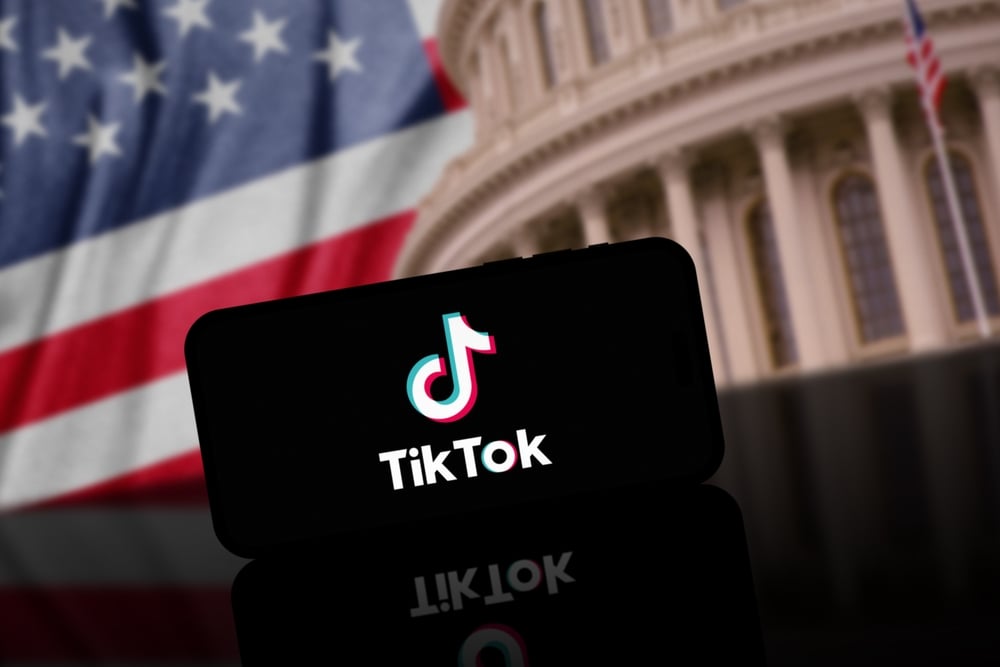The U.S. government has asked a court to reject TikTok’s emergency request to delay a law that would ban the app in the United States unless its Chinese owners sell their shares.

On Friday (December 6), a federal appeals court dismissed TikTok’s lawsuit challenging the law. TikTok said it would appeal the Supreme Court ruling.
TikTok and its parent company ByteDance filed an emergency motion on Monday (December 9) asking for a temporary injunction to delay the implementation of the law, arguing that “the Supreme Court, as the only court with appellate jurisdiction over this lawsuit, should Have the opportunity to make a decision”. Whether to review this extremely important case.”
The Protecting Americans from Apps Controlled by Foreign Adversaries Act, signed into law in April 2024, targets apps owned by companies from countries the United States deems to pose security risks, including China, Iran and Russia. The law explicitly lists TikTok as a threat. In order to continue operating in the United States, ByteDance must sell the app by January 19, 2025, or face restrictions.
Lawmakers and government officials believe TikTok could give the Chinese government access to sensitive user data or allow it to manipulate what Americans see. TikTok, which has more than 170 million users in the United States, denies the claims and says it will not share data with the Chinese government.
If the Supreme Court does not intervene and ByteDance does not sell the platform, app stores will have to stop offering TikTok in the United States and will block updates to the app starting January 19, 2025. The program may initially stop working over time. TikTok parent company ByteDance has previously insisted it has no plans to sell the app.
In an emergency motion filed by TikTok and ByteDance on Monday (you can read the full text here), they said it’s possible that the incoming Trump administration could suspend enforcement of the law or mitigate its most severe effects. The president-elect promised to prevent the app from being banned once he takes office.
According to TikTok’s motion, “an injunction is particularly appropriate because it would give the incoming administration time to determine its position — which could raise imminent harm and the need for Supreme Court review.”
In a response to the motion filed on Thursday (December 11), the U.S. Department of Justice urged the court to deny ByteDance and TikTok’s motions to delay the law, saying they “failed to provide any good cause for early termination of the highest It is the prerogative of the court to decide how to rule.” Proceedings in this court should proceed”.
The document also expresses the government’s concerns about the likely duration of the requested delay in enforcing the law, arguing it could be “indefinite” as TikTok has yet to commit to a timetable.
According to the U.S. government’s filing Thursday: “At the absolute minimum, this court should deny the petitioners’ request for an open-ended injunction pending Supreme Court review, under which the petitioners could delay seeking such review for months. , thereby effectively terminating the Supreme Court’s decision early.
“In fact, TikTok has stated that if it receives an injunction from this court, it does not intend to file any petition for certiorari with the Supreme Court until a decision is made – which appears to be in light of the impending change of administration and possible There were months of non-litigation efforts.
“As the Court has already ruled, the Act’s prohibitions are tailored to advance compelling national security interests. As explained, any delay in the prohibition beyond what Congress determines is appropriate is without merit.” The petition The indefinite delay envisaged by the authors – which could be delayed by more than a year if the Supreme Court review is postponed until the next term – would be particularly detrimental to the government and the public’s interest in enforcing the bill.
The document states that if the court yes “Inclining to grant” TikTok’s request, any injunction should be conditional on TikTok and ByteDance having to file a petition with the Supreme Court within seven days, “which would allow the Supreme Court, if it wishes, to expedite consideration of the case and allow for the A decision will be made within the time limit.”
TikTok claimed in a statement posted on its website on Monday that TikTok’s advertising, marketing and organic influence contributed $24.2 billion to U.S. GDP in 2023 alone, while TikTok’s own business contributed another $8.5 billion to U.S. GDP.
TikTok quotes “Estimated [that] Data shows that unless the TikTok ban is stopped, small businesses on TikTok will lose more than $1 billion in revenue, and creators will suffer nearly $300 million in revenue losses in just one month.
The Supreme Court’s review of the case will be closely watched. The outcome will set an important precedent for how the United States deals with foreign-owned technology companies.global music business

